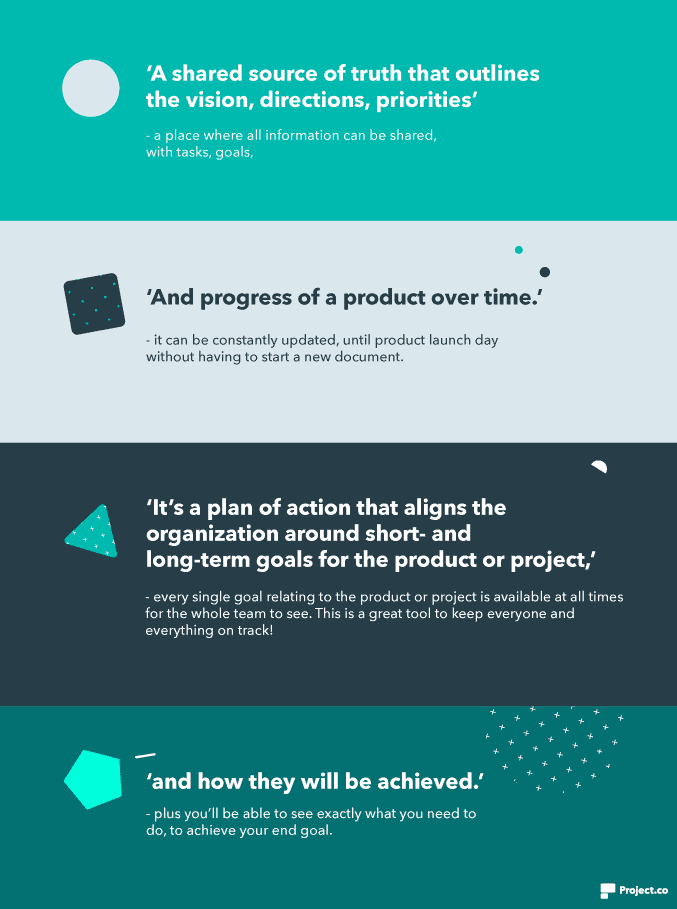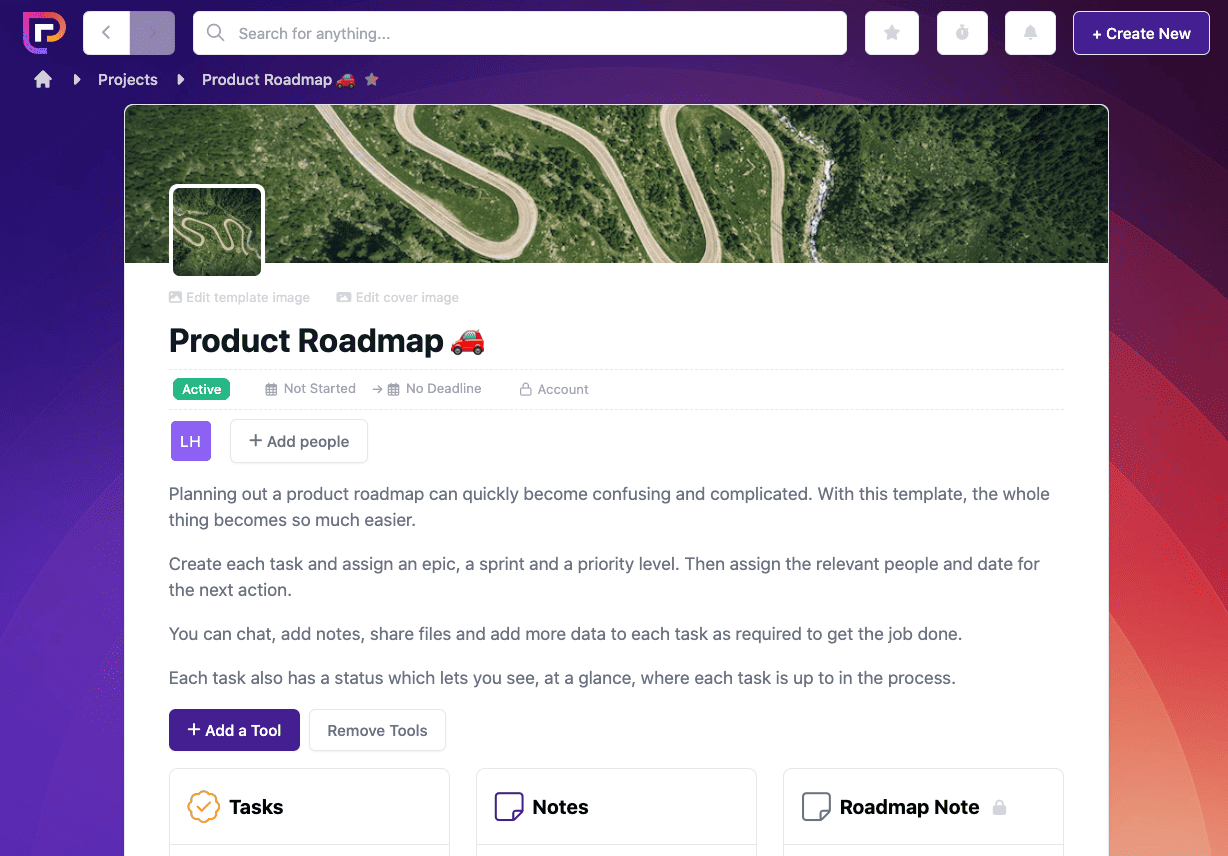Last updated 26th June 2024
Just like a map for a long journey that helps you travel from one location to another and stops you from getting lost, a product roadmap is an essential starting point for any new product.
Roadmaps can be tailored to suit any team and provide visual communication for a variety of company types and industries.
Bringing visibility to all the moving pieces in a project, roadmaps can help product teams coordinate their efforts, and work together cohesively.
In this article, we’ll run through how to create a product roadmap and offer you a free template to help you get started!
What is a product roadmap?
A product roadmap is a shared source of truth that outlines the vision, direction, priorities, and progress of a product over time. It’s a plan of action that aligns the organisation around short and long-term goals for the product or project, and how they will be achieved.
But let’s break that down a little:

A roadmap helps to set out what you’re building but also why & in what order and all items should be clearly linked to a well thought out strategy.
So, before a roadmap is planned out, make sure you have selected your team and had a strategy meeting.
Who needs a product roadmap?
Development teams
Teams that are developing products will have a lot of information to cover. They may even use more than one roadmap, for different parts of the product journey.
Some common versions include details about the customer value, target release dates and milestones.
Executives and higher-ups
Although they may not work directly from a roadmap themselves, it can help to show how the team’s work can support the goals of the whole company.
This is vital information for executives and higher-ups to be privy to. With the clearly defined information that roadmaps include, this can be a convenient way for them to remain in the loop.
Sales teams
Sales team’s roadmaps usually focus on new features and customer benefits in order to support sales conversations.
They can be kept as a vital resource to help salespeople lead customers through their journey.
But, due to the customisable nature of roadmaps, they can be altered to fit lots of different teams and projects.
Goals of a product roadmap
Ideally, a product roadmap should be a strategic plan that lays out the direction for your product. So, goals are a huge part of that. The goals included, should stay high level, more detail can be added later.
Any goals included in your roadmap should align with your business goals, with both a mixture of long term and short term goals.
For example:
– Provide a guiding document for executing the strategy– a long term goal to use throughout the project.
– Get internal stakeholders in alignment– a long term goal that can be carried on, even after this project is finished.
– Facilitate discussion of options and scenario planning– a short term goal that is needed for the current project.
– Help communicate with external stakeholders, including customers– a long term goal that will also be able to be used in future projects.
When it comes to a product launch, it’s so easy to get stuck in a bubble. You have tasks to do and you need to focus, but consideration needs to be made about things that may affect your roadmap goals.
Product roadmap content
Although it largely depends on the audience, common content includes:
1. Goals
The goals discussed above should be included, but also, business objectives and strategies. So, the ‘Why are we doing this?’ and ‘How does this fit into our overall company objectives?’.
2. Product themes
This should include enough detail about user assumptions and user stories, (but not so much that you bore people). You can link out to other sources, you don’t have to include everything in the roadmap itself. But any team member reading these sections should get a good idea of what users are saying- maybe even include success metrics.
3. Product Features
For example, if the product is a mobile app, showing all of the app features is appropriate. Depending on what your product is, the content will change here.
4. Dates
Important dates to note should be included, such as start date and expected end date.
5. Priority order
All tasks should be placed in priority order, so your whole team knows what work needs picking up, and when.
6. Dependencies
Dependencies are tasks that need to be completed in a certain time frame, in order for the next stage of a project to be completed. Highlighting dependencies will help your road-mapping be more effective.
Best practices for roadmaps
To keep your roadmap focussed and helpful, you should follow these best practices:
– Review on a regular basis and make changes when plans change.
– Make sure the whole team has access- and that they check it on a regular basis.
– Stay connected with all stakeholders to make sure everyone is aligned.
The template
With Project.co you can plan your product roadmap out in style! You can Chat, share files and assign action points to each new product development.
Plus we’ve made it easier, with a ready-made template. You’ll be able to see a variety of upcoming product developments. Each one is represented as a task, without an associated date.
This means that, within each task, your team can discuss, keep notes of progress, share files and important information. Each task also has a status, so you can see where you’re up to at a glance.

The template includes:
- Project details
- Notes
- Tasks x 24
- Custom task statuses x 3
Final thoughts
So whether you have a product about to launch or just the idea in your head, it’s time to get organised with your very own product roadmap.
Get started with our free template here.

![How-To-Create-a-Product-Roadmap-[With-FREE-TEMPLATE]- Product roadmap](https://e3m3v6b5.rocketcdn.me/wp-content/uploads/2021/05/How-To-Create-a-Product-Roadmap-With-FREE-TEMPLATE-.png)
